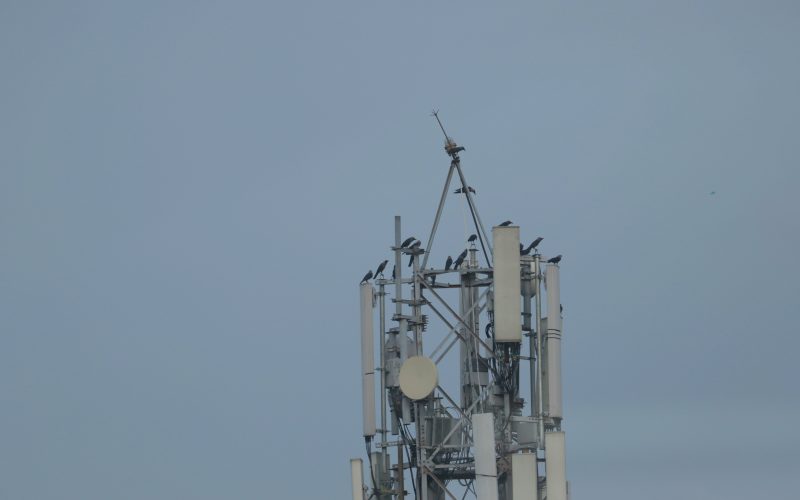Are you concerned about the potential health risks of 5G radiation? You’re not alone. As the rollout of 5G technology continues to accelerate, so do fears and rumors surrounding its impact on our well-being. But what’s fact and what’s fiction when it comes to this controversial topic? In this post, we’ll separate myth from reality by examining the latest scientific evidence and expert opinions. So buckle up and get ready for some much-needed clarity around 5G radiation and your health!
What is 5G?
5G networks are the next generation of wireless systems, and they promise to revolutionize mobile communications. 5G technology is still in its infancy, but it is already clear that it will offer significantly faster speeds and lower latency than current 4G networks. In addition, 5G will enable a new wave of applications and services that were not possible with previous generations of wireless technology.
One of the most important aspects of 5G is its ability to support massive numbers of devices and connections. This is made possible by using a much wider range of frequencies than previous generations, including very high frequencies (known as millimeter waves). These higher frequencies can carry more data, but they also have shorter ranges and can be more easily blocked by buildings or other obstacles.
To overcome this challenge, 5G networks will use a combination of techniques, including beamforming and massive MIMO (multiple-input multiple-output). Beamforming allows the signal from multiple antennas to be focused in a specific direction, while massive MIMO enables many antenna elements to be used simultaneously to serve multiple users. Together, these technologies will allow 5G networks to provide both high capacity and coverage.
Another key aspect of 5G is its support for low latency applications. Latency is the time it takes for a packet of data to travel from one point to another. With current 4G networks, latency can be as high as several hundred milliseconds. This is fine for many applications such as web browsing or email
How does 5G radiation affect human health?
There is a lot of debate surrounding the health effects of 5G radiation. Some people believe that 5G radiation is harmful to human health, while others believe that it is safe. However, the truth is that we don’t really know how 5G radiation affects human health because there has not been enough research on the topic.
Some people believe that 5G radiation is harmful because it is a type of electromagnetic radiation. Electromagnetic radiation has been linked to cancer and other health problems in some studies, but it is important to remember that these studies have not been conclusive. Additionally, 5G radiation is a new type of radiation, so we don’t yet know all of its potential effects on human health.
Other people believe that 5G radiation is safe because it has a lower frequency than other types of electromagnetic radiation. This means that it does not penetrate the skin as deeply, which could reduce its potential to cause damage. Additionally, 5G networks will use less power than previous generations of cellular networks, which could also reduce any potential risks to human health.
At this point, we simply do not know enough about 5G radiation to say definitively whether or not it is harmful to human health. Until more research is conducted, we recommend taking precautions to limit your exposure to 5G radiation, such as avoiding using cell phones in areas where there is no signal or using hands-free devices when possible.
What are the benefits of 5G?
There are many potential benefits of 5G technology, including faster speeds, more reliable connections, and lower latency. 5G could also enable new applications and services that are not possible with current 4G networks. For example, 5G could enable virtual reality, augmented reality, and other forms of immersive media. Additionally, 5G could enable new “smart city” applications that rely on large-scale data collection and analysis.
Are there any risks associated with 5G radiation?
When it comes to 5G radiation, there is a lot of misinformation out there. Some people believe that 5G is a health hazard, while others believe that it is perfectly safe. So, what is the truth?
Are there any risks associated with 5G radiation?
The short answer is that we don’t really know yet. 5G technology is still new and scientists are still studying its long-term effects. However, some experts have raised concerns about the potential health risks of 5G radiation.
One concern is that 5G radiation could be harmful to our skin. The skin is our body’s largest organ and it absorbs a lot of the electromagnetic radiation that we are exposed to. This means that the skin could absorb more 5G radiation than other parts of the body.
Another concern is that 5G technology will lead to an increase in EMF pollution. EMF pollution is already a problem in our modern world and it has been linked to a variety of health problems, including cancer, infertility, and headaches. If 5G technology does lead to an increase in EMF pollution, this could potentially make these health problems even worse.
So far, there is no scientific evidence that proves that 5G radiation is harmful to our health. However, more research needs to be done in order to fully understand the long-term effects of this new technology. In the meantime, it might be wise to take some precautions to reduce your
How can you protect yourself from 5G radiation?
There is a lot of misinformation out there about the health risks of 5G radiation. Some people believe that 5G radiation is more harmful than other types of electromagnetic radiation, but there is no scientific evidence to support this claim. Here are some tips to help you protect yourself from 5G radiation:
1. Use a EMF protection device. There are devices available that claim to protect against EMF radiation, including 5G radiation. However, it is important to note that there is no scientific evidence to support the efficacy of these devices.
2. Limit your exposure to 5G networks. If you live in an area where 5G networks are being rolled out, try to limit your exposure by spending less time outdoors or using a device that emits 5G radiation (such as your smartphone).
3. Avoid using devices that emit high levels of EMF radiation. Some devices, such as microwave ovens and hair dryers, emit high levels of EMF radiation. If possible, avoid using these devices or keep them at a distance from your body.
4. Be aware of the symptoms of EMF exposure. Symptoms of EMF exposure include headaches, fatigue, anxiety, and difficulty concentrating. If you experience any of these symptoms after being exposed to 5G radiation, move away from the source of the radiation and seek medical help if necessary.
Conclusion
In conclusion, 5G radiation poses a certain amount of health risks that need to be taken into consideration. It is important to separate fact from fiction in order to make informed decisions about the potential effects of this new technology. Although there are some legitimate concerns, it appears that the benefits far outweigh any potential negative consequences and it is likely safe for most people when used responsibly.












